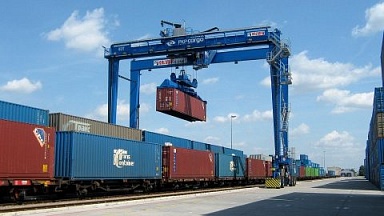Rather than blocking rail freight traffic, it is important to keep intermodal operations running, the letter states. After all, it is this transport mode that includes the least of human movement. «Consider that on rail transport a train crew (maximum 2 people) moves 40 semi-trailers, while a transhipment terminal that handles 20 pairs of trains daily, uses 60 railway staff to move goods, that would otherwise require 800 truck drivers.»
Centralised measures
If intermodal rail transport is vital for the economy and supplies, it must be supported and guaranteed with specific aids and measures, the letter continues. «Since the beginning of the coronavirus emergency, the various actors in the logistics chain have adopted a series of measures to protect the health and safety of the people involved in the production processes, implementing and often anticipating the indications of the authorities.»
According to the parties signing the letter, these should be implemented through interventions and processes coordinated with the Civil Protection and the Regions involved. At the same time, there should be some level of centralisation, in order to have uniform procedures of action. The parties plead for clear and transparent communication at institutional level, while avoiding counterproductive alarmism.
Compensation
Transhipment terminals form an essential link in the operation of intermodal transport and require special attention, including first/last mile services on road, the letter suggests. «Digitalization and administrative simplification, including the speeding up of the authorisation processes of railway customs corridors reduces the risk of contagion.»
Furthermore, the parties also call for support in terms of the cost of labour in companies that reduce activity due to a significant drop in volumes, or deferral of expected payments due to lack of liquidity. It calls for a deferral of one month for all administrative formalities to the public administration.

Major shift to rail
«With the spread of the coronavirus becoming more apparent, leading companies in the logistics sector are shifting a significant amount of goods to rail in order to reduce the mobility of people (drivers) across Europe. This happens especially on the north-south corridor for traffic to and from Italy.
«Rail transport, both intermodal and conventional, plays a strategic role as it moves large quantities of goods over long distances», the letter explains. «If intermodal rail transport is vital for the economy and supplies, it must be supported and guaranteed with specific aids and measures», the letter concludes.
The letter is signed by a list of Italian intermodal operators as well as the European Shippers’ Council (ESC), European Rail Freight Association (ERFA), Netzwerk Europäischer Eisenbahnen (NEE) and International Union for Road-Rail Combined Transport (UIRR).





